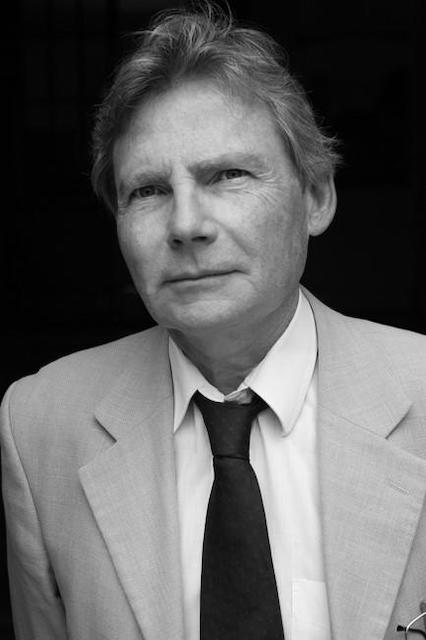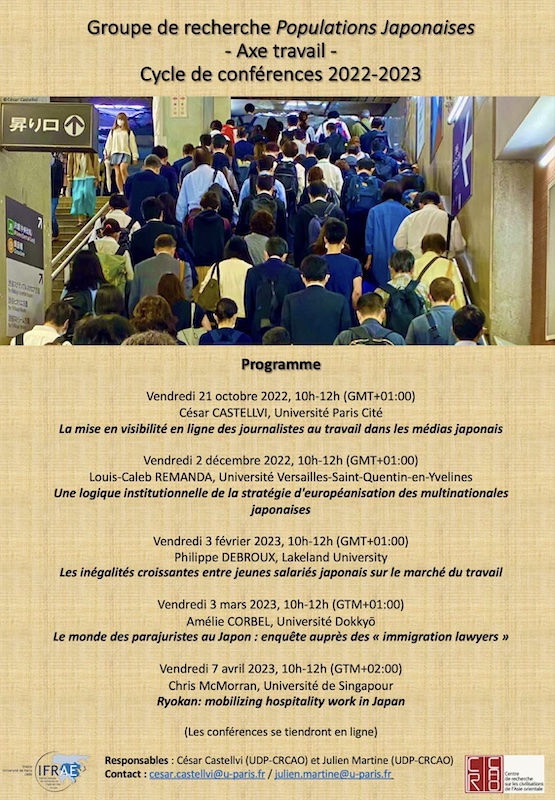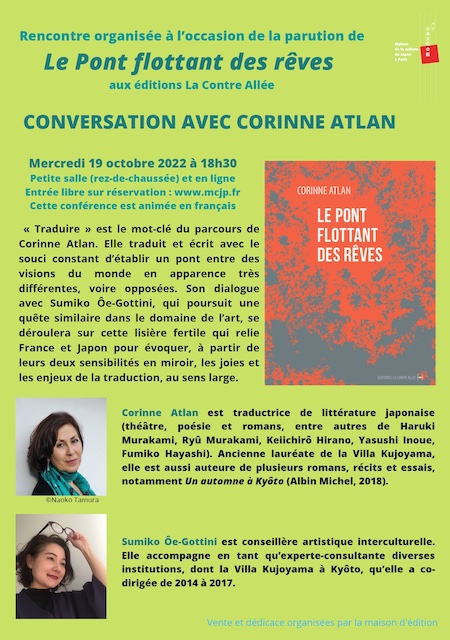Dans le cadre des « Kyoto Lectures » organisées par l’EFEO et l’ISEAS à Kyōto, Olivier Ansart donnera une conférence intitulée :
« Ogyū Sorai’s Political Theory Reconsidered: What, and Why? »
Mercredi 16 novembre 2022 à 18h, JST
En ligne, sur Zoom
Le lien et le mot de passe, pour accéder à la conférence sur Zoom, seront affichés la veille sur le blog du Centre de l’EFEO de Kyōto, en cliquant sur ce lien.
This presentation intends to address the political theory of Ogyū Sorai (1666–1728), the speaker’s first topic of research some twenty-five years ago. By doing so, two fundamental questions come to the fore. First, what does his political theory express that is worth remembering? The question still deserves to be asked since there exist at least two possible but widely different readings of the theory: traditional and religious vs. secular and modern (or even postmodern, for some), both grounded on apparently explicit and unambiguously strong statements. For this reason, Sorai’s political theory presents us with the classic problem of the interpretation of the treatment of contradictions and incoherence. The favored reading that will emerge should prompt the question of “why?”: Why do these factors make such a bold theory conceivable? The argument will draw on Max Weber’s insights into “elective affinities,” as well as on Bourdieu’s notion of habitus, hoping to provide a concrete example for an often obscure concept. The answer to this “why” question is to be found in the role of conventions, pretenses, and self-deceit of the bushi society of the time.
Olivier Ansart
He obtained his doctorate in Chinese studies (University of Paris, 1981), joined the French foreign service, and then returned to academia fifteen years later, this time in the field of Japanese studies. He was director of the Maison franco-japonaise (Nichifutsu Kaikan) in Tokyo (1992–1995) and a professor at Waseda University before joining the University of Sydney in 2003, from which he retired in July 2022. He is the author of L’empire du rite. La pensée politique d’Ogyū Sorai (1998), La justification des théories politiques (2005), Une modernité indigène (2014), L’étrange voyage de Confucius au Japon (2015), and Paraître et Prétendre (2020).




